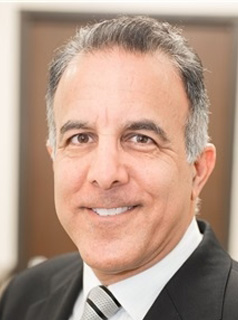Coffee Shows Signs Of Improving Athletic Ability
A new study by the University of Georgia has shown that one of the most popular beverages in North America, coffee, has the potential to boost the athletic abilities of those who indulge during sporting activities. This is not the first study to be performed regarding the positive effects of caffeine on athletics, but it does differ from past research in that this study examined the drink itself, rather than just a supplement.
Caffeine tablets have been used as a form of exercise and muscle building enhancement for a number of years, and is sold under a variety of brand names, each with different doses and compositions. The effectiveness of the drug on endurance and energy has been argued for decades, with past scientists claiming that endurance was not influenced. The most recent research offered a different consensus, Confirming its abilities. Medical News Today writes: “Caffeine is probably the most used stimulant and psychoactive drug on the planet. Each day, Americans consume an average of 27.3 oz of coffee; an estimated 10% of Americans consume more than 1,000 mg of caffeine on a daily basis. Caffeine is absorbed relatively quickly once it reaches the stomach and hits peak levels in the blood 1-2 hours after ingestion. The stimulant is absorbed into most types of body tissue and has an effect on a wide array of systems.”
As with other natural and manmade versions of herbs, vitamins, and health supplements, the natural form of coffee, when roasted, brewed and ingested, is slightly different than the results gained from manmade tablets. Researchers who took part in the most recent study were unable to determine why the effects are different, but have suggested that it could lie in both preparation and additional chemical properties before and after processing.
Recent Findings
The latest findings on coffee and its effectiveness on athletics has been taken from a number of other studies which were performed in the past. The data found proved that there was a significant enhancement in those who consumed the hot beverage before working out or participating in an event. The caffeine was measured per kilogram of body weight. This was noted by lead researcher in the latest publication, Simon Higgins. Matt Shea of Ask Men reports: “Higgins is a third-year doctoral student in kinesiology in the College of Education, and wanted to reach past just caffeine and see how coffee — one of its most popular sources — fared in delivering improvements in academic performance. Of the 600 articles, Higgins found nine trials that specifically used coffee to improve performance. Of these nine, he found that between three and seven milligrams per kilogram of body weight of caffeine from coffee increased endurance performance by an impressive average of 24 percent.”
Simon Higgins suggested that while the evidence makes it obvious that coffee can offer athletic support, the amount of caffeine will vary from brand to brand and even by type of roast. Dark roast blends and light roast blends vary in the amount of caffeine which is present.
Professional Athletics And Coffee
Unfortunately, for professional athletes, caffeine has become one of the drugs which is tested for before competitions. This means that regulations are in place to keep this dosage below a certain number. Higgins was quoted by the Daily Mail in saying: “There is a caveat to athletes using coffee: Be careful because you don’t know how much caffeine is in some coffee, especially when it’s prepared by someone else. Athletes should run their caffeine use through their sports dietician as the NCAA lists it as a banned substance.”
If athletes can’t be certain of the amount of caffeine in each cup of coffee, they may be unable to qualify for competition. On a more positive note, this realization could be beneficial for non-professionals seeking a boost of endurance and energy before the gym.
Surprising Results
Despite the many past research opportunities and studies which have been performed on caffeine in general, Higgins and his team were most surprised by how little had been found in the correlation of coffee and athletics. The way that caffeine in coffee, and even in tea, assists individuals in boosting alertness and creating longer hours of alertness during work or studies is thought to be a big indicator in the possibilities that the beverage could have had in athletics.
This new realization has opened doors for ongoing research opportunities and provides Higgins and other doctorate students with the ability to pursue studies in something that has boasted few documented results in the past, but which is sure to be a successful test subject. With roughly 80 or more percent of the American adult population consuming more than a cup and a half of coffee regularly, this is likely to become a topic of interest for more than just the athletic community.

WARNING: Limitations of Online Doctor/Medical Consultations and Online Prescriptions, QuickRxRefills Cannot and Will NOT Prescribe, Dispense, or Resell any and all medications Narcotics/Controlled Substances (this policy is fully enforced by the Drug Enforcement Administration (DEA)) for Anti-depressants, Pain, Anxiety, Weightloss, Sleep, ADHD/ADD, Anabolic Steroids, Testosterone Replacement Therapy and any and all Medications that contain GabaPentin or Pseudroephedrine including non-controlled substances or any medications that are considered controversial, Off Labeled (Growth Hormone aka HGH) or recalled in nature such (i.e. Retin-A, Accutane). Furthermore, QuickRxRefills is not a substitute for an office based physician in your location nor is it a substitute for Emergency Medical Care or 911. If you do experience a "true" medical emergency your are encouraged to pick up the phone and dial 911 as soon as possible.






